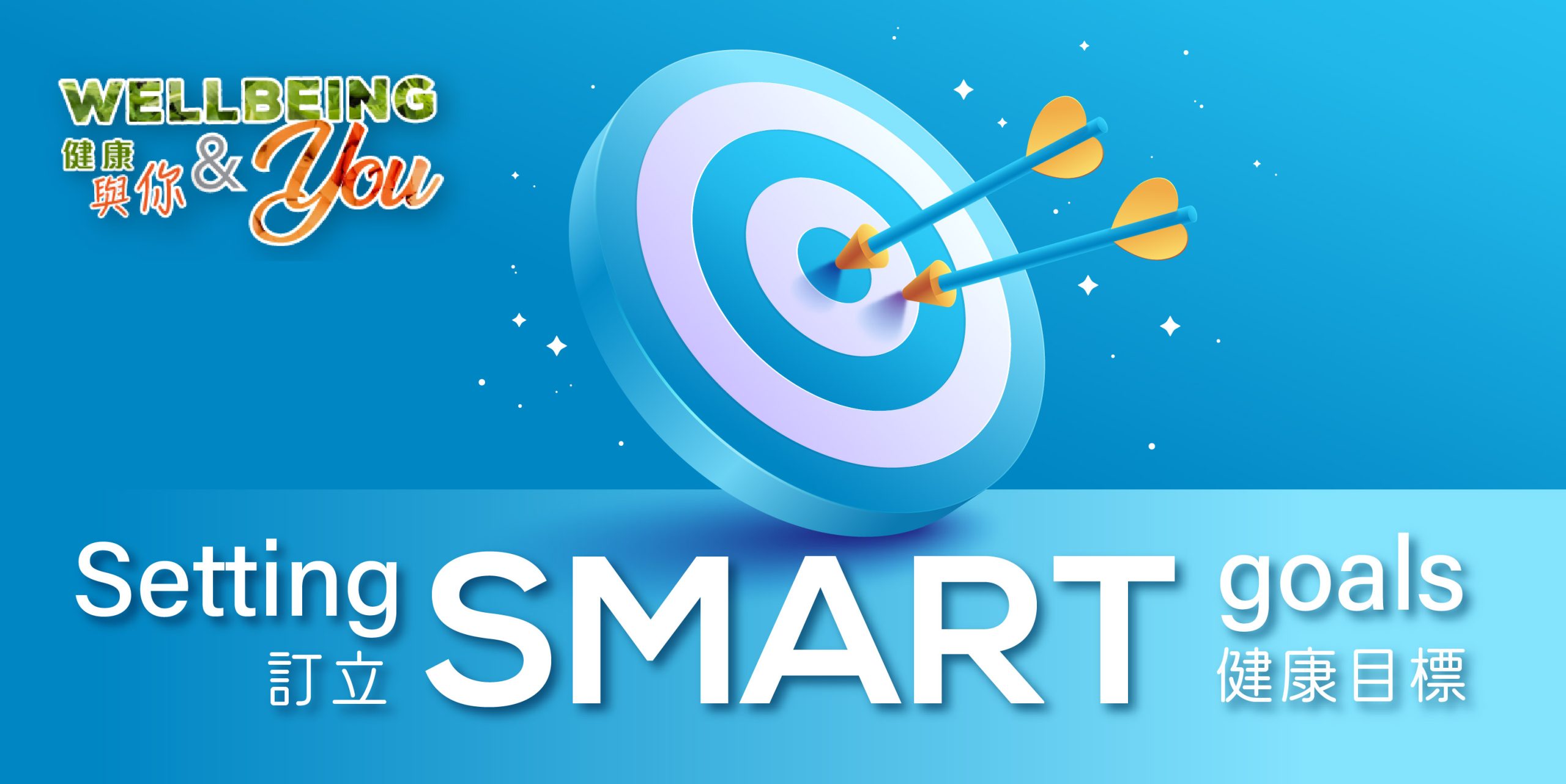[Wellbeing & You] Setting SMART Goals

Time flies and we are already approaching the end of 2022! Looking back, have you achieved what you aimed for this past year? Looking forward, what New Year’s Resolutions do you have in mind? Before you make any pledges, here’s a handy tool to help you set goals that are “SMART”!
What are “SMART” goals?
S.M.A.R.T. is a mnemonic acronym referring to goals which incorporate several criteria to help a person focus his/her efforts and hence increases the chances of achieving such goal. The “S.M.A.R.T.” goal setting principle is not only a popular tool used in the business setting, but only widely used in guiding personal growth and development in areas including overall health and wellbeing.

To be “S.M.A.R.T.”, a goal must incorporate five different criteria:
SPECIFIC
The more defined a goal is, the more likely you are to accomplish it. When planning a specific goal, try asking yourself this question: “Does this goal call for a particular action?”
For example, one may wish to “eat healthier” for the coming year, which is a very general aspiration and not very “actionable”. In order to increase the chance of success, a more specific goal would be “I want to improve my diet by consuming adequate amount of vegetables and fruits daily.”
MEASURABLE
Measurable goals are ones that you can track, reflect, and calibrate as needed along the way to ensure you are heading right towards your target.
Using the same example from above, adequate consumption of vegetables and fruits can be translated to at least 3 servings of vegetables and 2 servings of fruits daily. This way, one can keep track on the amount he/she consumed in a day, or even better, incorporate servings into his meal plan in advance.
ACHIEVABLE
Goals should be challenging enough, and at the same time, attainable and realistic so that you are not setting yourself up for failures. While eating 3 servings of vegetables and 2 servings of fruits seem achievable from a broad view, one should consider strategies and resources to overcome barriers possibly faced in a realistic scenario.
For example, one may find it quite difficult to get enough vegetables and fruits when dining out for work lunches. Planning strategies such as ordering side vegetables with colleagues and packing vegetable sticks as afternoon snacks can easily solve the problem.
RELEVANT
Find a goal that is relevant to your personal improvement. While there are million ways to get healthier, some people may benefit the most from improving their diet while others may find smoking cessation the utmost urgent goal to achieve.
TIME-BOUND
Set yourself a deadline to drive motivation and action. Even if you may fail to achieve the goal as scheduled, having a time constraint would often bring you closer to the endpoint than with none.
“SMART” Health Goal Examples
Lack of exercise?
“For the coming month, I will walk for at least 30 minutes every day during weekday lunches!”
Heavy drinker?
“From now until end of March 2023, I pledge to only drink during weekends. And I will always pair a full glass of water with each unit of alcoholic beverage I consume.”
Sugar addict?
“In the coming two weeks (phase one), I will replace all desserts with fresh fruits.”
“In the following two weeks (phase two), I will eliminate all food items with added sugar, including snacks and beverages.” No matter what “S.M.A.R.T.” goals you plan to achieve in 2023, Compass Group Hong Kong wishes you health, happiness and success to come!


